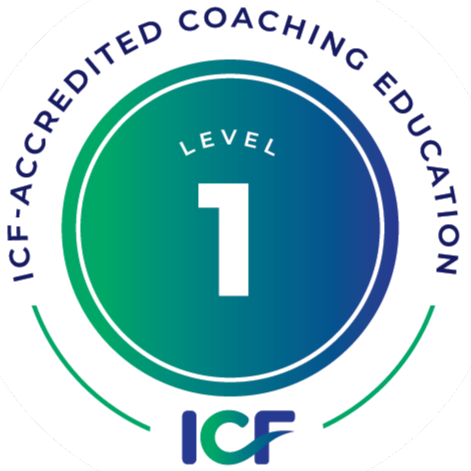
By: Kim Green
Mea culpa and Happy Holidays. So sorry that I have not written in a while, but that doesn’t mean that our coaching calls have not moved full steam ahead, without me. Despite my falling off track a little, truth is, I only missed one call on November 22nd (We are allowed to miss 5). For accountability purposes, let me explain. In an attempt at being fully present for my family as we travelled to Arizona for Thanksgiving, I chose to miss one class.
Sadly, I had to work everyday, anyway, on a book project to meet an insane deadline. So, everyday of my family’s 10-day vacation, I woke at 6am and wrote until 10 or 11am each morning. A grueling feat, of which, I’m not particularly proud, but it felt like a win when I was able to get the book finished in the timeframe that it was promised. Skipping class was the least I could do for my family and friends. As much as the decision to miss a class was a struggle, I erred on the side of “presence,” which will always be necessary when dealing with my soon-to-be-clients. It was a good practice in letting go.
During my self-appointed “down time,” the class was just heating up. There were many subjects introduced. All have been lectured on, taught, read to us and lightly discussed in the weeks following my singular missed call. In trying to juggle my book project and teenage domestic issues at home, the twice weekly calls felt like they were everyday and I just couldn’t get myself back on the rigid blog writing schedule that I had set.
Nevertheless, there have been endless names of psychologists and other mental health experts and their theories served up for our consideration. And, of course, a multitude of book recommendations; all to be read, after we finish our Professional Coaching book, the many hand outs that are emailed every week, prepare for our peer coaching calls, some of which will be observed by Lynn, and the rest of my life.
Lynn has been dropping some serious names on us like Ken Wilbur, Carl Jung, Frederic Hudson, Gail Sheehy, Robert Kegan and happiness expert, Martin Seligman for further investigation, in our spare time. Lol! When I seriously think of all that I need to know and understand, I must admit that I detect a slight overwhelm rising up in my chest with a mild migraine lingering in the background, ready to burst into pain at any moment.
Carl Jung and Kim Green have never been in the same sentence, indicating that we know some of the same things! I share all of this to say that these newest topics indicate how closely aligned coaching is with serious mental health disciplines. So close that the lines are often blurred. There was an exercise to determine which scenario fit into “therapy,” “counseling” or “coaching.” The only thing that soothes my mind is the realization that coaching is NEITHER therapy, nor counseling. I remember the drill: Our clients are already capable, creative and competent. No need to fix or diagnose…no matter how hard we all want to from time to time. As Lynn says, the pressure is off! Hallelujah!
The thing that bugs me the most, these last few weeks of falling off the wagon, is that it never fails that whenever I get too much information thrown at me at once, my brain does a funny thing. It sort of shuts down, taking in none of it, literally. Instead, I can rely on my ears to take it in and my subconscious to store it for future use, like when I have an ounce of time to sort it all out. But the fascinating information is all in there, and in my little black book, in which I take copious notes.
So, although I say my brain is in “shut down” mode, there have been many take-aways over the last few classes, that I would like to outline here, just so you can start to fathom what I’m talking about. It’s been a LOT to know and remember. On a positive note, it is also a lot of invaluable information to help us understand our clients, who will entrust us with their lives. (But, still no pressure.)
So, to take up where I left off when we learned about how adults learn…the conversations seemed to ramp up to the stages of human development. We started with Ken Wilbur whose work revolves around the mindset of people, those who will potentially arrive on our doorsteps for coaching. Wilbur’s theories are important because he has given us the notion that people come to us with their own individual historical perspectives based on their own life experiences. He called this the “Group Mind.” Carl Jung calls the Group Mind, the “Collective Conscious.” This was invaluable for coaches to gain further insight when meeting their clients. As Jung says, they are bringing their “whole self.” And, that can be a lot to handle. Truth is, as human beings, we are all A LOT.
The next thinker that Lynn presented was Fredric Hudson who suffered with polio as a child. When in the throes of his disability, he chose to stare up at the ceiling to avoid interaction with others. Eventually, Hudson became an educator and developed distance learning. In fact, he was instrumental in the Fielding Institute, one of the first schools to accept the concept of adult development. He was another one to study adults and the challenges that they face through the decades of their lives. Gail Sheehy’s 1976 bestseller, “Passages” also looked distinctly at adult life and development.
On the next call, Robert Kegan was discussed. Along the same line of the others, Kegan outlined the stages of adult development and put them in stages.
Stage 1: Infancy and Childhood
Stage 2 – The Egocentric Self – “It’s all about me.”
Stage 3 – The Socialized Self – “It is my job to provide for my family and it stresses me out.”
Stage 4 - The Independent Self – “I can appreciate differences.”
Stage 5 – The Integral Self – “I see conflict as an opportunity”
Stage 6 – The Sacred Self “ I see the world as one.”
What was most interesting about these stages is that most people never reach Stage 6, The Sacred Self, which I guess is what I am aiming for.
Having this information will help me prepare for clients in all of their stages and to further understand my own stage and how important it is that I keep ascending, reaching for Stage 6. Studying these works will be helpful in identifying the people whom I encounter, easing the selection process of whom I would like to work with. And, if it is decided that we are not a “fit,” no one is wrong, and when this happens, we were taught to be honest with them and refer them to someone else. It is true that we are all a work in progress, which makes the coaching relationship quite a formidable entanglement. It is a fragile dance of human history, ability to be open, our fears and the ability for each of us to trust each other.
The next interesting topic was the cultural considerations when dealing with adults. I liked the permission that was given for us to be inquisitive about the cultural backgrounds of our clients. It is a true that culture matters even in an ever-shifting world that seems so overwhelmed with notions of diversity. We all aspire to a diversity mindset but fear has gripped too many of us. Of course, the diversity that we are discussing here, actually, goes much deeper than ethnicity. It encompasses, belief systems, faith traditions, family folklore, geography and sub cultural norms. These pasts never end for most people, no matter how hard they work to move beyond them. Our job as humans is to accept the truth of who we are and expand it. So, my takeaway is that being aware and sensitive to all aspects of a human being’s history is mandatory…the rest we must intuit. Like Lynn says, it is our job to “bring awareness.
The heart of many of the calls during those weeks all reverted back to Hudson’s stages of renewal. For him the stages were Cocooning, Getting Ready, The Doldrums and the “Action” stage, better known as “Go For it.” Most of the class sighed with relief when Lynn assured us that being in The Doldrums state of development is perfectly normal. It seemed that the pursuit of coaching seemed to get some out of the Doldrums.
The earth continues to shift under our feet. As I write this, our world has changed again. The only truism that is safe to state is that our society is mostly a culture of adults. What makes the world so shaky is that adulthood is constantly being reinvented with the onset of long life that has been granted based on modern science and healthier lifestyles. Look around, adults are living to be up to 25 years longer than in previous generations. This new world of ours allows space for adults to have 2-4 career changes in their lifetime. But with that flexibility comes inevitable shifts and strains of discomfort, doubtfulness, risk aversion, etc.…What it all boils down to is that we are ever-changing but we remain and increasingly conscious people. As adults we are all struggling, constantly grappling, to find meaning. To that end, 60% of the population is sitting in Stage 3, where there is stress and fretting about their lives; the Doldrums, in other words.
We started December learning when to refer clients to mental health professionals when coaching is no longer appropriate. It was a shorter discussion then expected. If the client is showing patterns that are not towards the future and they seem to be stuck in old habits that they can’t past, it is time for a referral.
The last topic of this stretch was positive psychology which was just a reminder how positivity always trumps negativity. And as a coach it is a crucial outlook to have. Being a cheerful, sunny person does not come so naturally to me. I am from New York, I wear black every single day, and we, New Yorkers wear our cynicism on our sleeves like crisp new black fashions.
But after many years of living outside of New York, growing through the stages of adulthood, (marriage, divorce, money problems, health issues, relocation, dislocation, etc.…) I have learned one of the most important things that the segment on positive psychology had to offer: Gratefulness is the key to better everything. Luckily, I am out of New York, where it is safe to say, that I am so humbled and grateful for everything I have, will have and have had. My joy of learning this incredible new skill is one that will indeed change the course of my life for the better. This humble exuberance is what I will bring to my clients, especially when they are in the Doldrums.
 Kim Green is a writer and a student at The Institute for Life Coach Training. In this blog series, she has documented her experience as she goes through the Foundational training. To read about Kim's journey, click here.
Kim Green is a writer and a student at The Institute for Life Coach Training. In this blog series, she has documented her experience as she goes through the Foundational training. To read about Kim's journey, click here.




